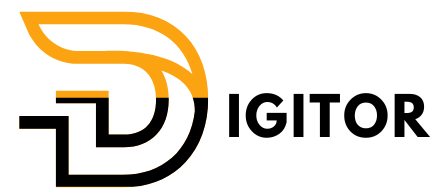How to Choose Domain Extension: A Complete Guide
Choosing the right domain extension is just as crucial as selecting the perfect domain name. Your extension can influence user trust, SEO, and how people perceive your brand. Whether you’re launching a personal blog, business site, or e-commerce store, understanding how to choose domain extension can shape your online success.
Why Domain Extensions Matter
Domain extensions, also known as top-level domains (TLDs), are the letters that appear after the dot in your web address—like .com, .org, or .net. These extensions signal the nature and purpose of your website.
Selecting the wrong extension can confuse visitors or make your site appear untrustworthy. That’s why it’s important to understand your options when deciding how to choose domain extension.
Types of Domain Extensions
1. Generic Top-Level Domains (gTLDs)
These are the most common domain extensions and are not tied to any location. Popular gTLDs include:
-
.com– Best for businesses, most trusted -
.org– Often used by non-profits or open-source projects -
.net– Suitable for networking and tech-related sites -
.info– Used for information-based sites
✅ Tip:
.comis always a safe and professional choice if it’s available.

2. Country Code Top-Level Domains (ccTLDs)
These represent specific countries or regions, such as:
-
.in– India -
.uk– United Kingdom -
.au– Australia
If your business targets a local audience, a ccTLD can help signal regional relevance and improve local SEO.
3. Niche or New TLDs
These include industry-specific or creative extensions like:
-
.tech,.design,.store,.app,.blog,.agency
They’re great for branding but may not be as trusted or familiar to all users. Always evaluate your audience’s comfort with new TLDs.
Check the complete list of available TLDs on ICANN.
How to Choose Domain Extension Based on Your Goals
1. For Businesses
-
Best choices:
.com,.biz,.co -
Avoid obscure TLDs that could hurt credibility.
-
If
.comisn’t available, try brand variations or use.coor.io.
2. For Personal Brands or Blogs
-
.me,.blog, or even.namework well for personal sites. -
Ensure the extension fits your tone and content.
3. For Non-Profits or Communities
-
Stick with
.orgor.foundation. -
These signal purpose and trust, especially in fundraising and educational spaces.
4. For Local Services
-
Use a ccTLD to emphasize locality (e.g.,
.in,.ca). -
Helps boost geo-targeted SEO and builds local trust.
SEO and Trust Considerations
While Google treats all TLDs equally for ranking, user behavior is different. Most users still trust .com more than newer or niche TLDs. If your audience is unfamiliar with .design or .xyz, they may question your site’s credibility.
⚠️ Avoid spammy TLDs often linked to scams, such as
.click,.loan, or.top.
Read Google’s stance on domain extensions and SEO.
Additional Domain Tips
1. Think Long-Term
Choose an extension you can grow with. Trends change, but trust in .com remains strong.
2. Check Domain Availability
Use trusted registrars like:
3. Protect Your Brand
If possible, buy multiple extensions (.com, .net, .org) to prevent competitors or copycats.
Need Help Picking the Right Domain Extension?
Struggling with how to choose domain extension that fits your brand? Get expert advice on branding, SEO, and domain registration. Contact our team and we’ll help you make the right digital decisions.
Final Thoughts
Choosing the right domain extension isn’t just a technical decision—it’s a branding and trust strategy. Whether you’re targeting a global or local audience, launching a store or a blog, following the best practices on how to choose domain extension will help you build credibility and reach the right people.
Take your time, research your options, and choose an extension that aligns with your vision.







